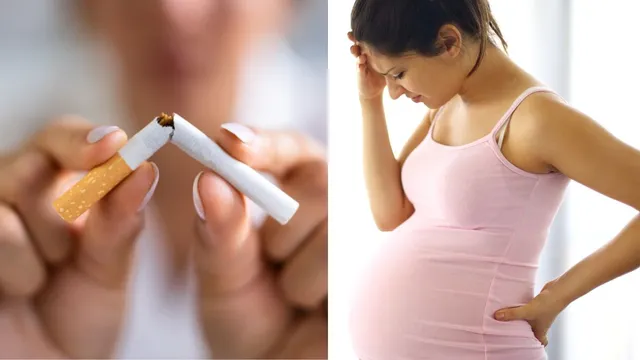- By Bornika Das
- Fri, 30 May 2025 07:48 PM (IST)
- Source:JND
World No Tobacco Day 2025: World No Tobacco Day 2025 falls on May 31, serves as a critical reminder of the devastating health consequences of tobacco use. While the risks of smoking, such as lung cancer, heart disease and stroke, are widely known, one often-overlooked consequence is its silent attack on female fertility. As more women delay motherhood for personal and professional reasons, understanding the subtle yet serious impact of smoking on reproductive health becomes all the more vital. The harmful chemicals that poison the lungs and bloodstream travel through the body, leading to hormonal imbalance and disrupting normal reproductive functioning, putting fertility at risk.
Even occasional smoking in the 20s and 30s, when reproductive health is typically at its peak, can compromise the quality of the egg and reduce the chances of conceiving naturally. Research suggests that women who smoke are at a 40–60 per cent higher risk of infertility compared to those who don’t. On World Tobacco Day 2025, it is important to note how smoking compromises a woman’s ability to conceive and why these effects often go unnoticed until it’s too late. In conversation with The Daily Jagran, Dr. Lipsa Mishra, Fertility Specialist, Birla Fertility & IVF, Bhubaneswar, shares alarming insights about how smoking silently damages fertility, interferes with hormone production and damages eggs in women.
Smoking Affects More Than The Lungs
Nicotine, the main harmful substance in tobacco, directly interferes with how hormones work in the body. Dr. Lipsa Mishra states, “For women, the presence of excess nicotine in the body often means a drop in oestrogen levels. This eventually disrupts the ovulation cycle and compromises the egg quality and quantity.” She further adds, “Smoking also accelerates the loss of eggs, affects the uterus’ ability to support a pregnancy, and even makes fertility treatments like IVF less effective.”
ALSO READ: World No Tobacco Day 2025: When Is Anti-Tobacco Day 2025? Know Its Theme, History And Significance
Tobacco use can cause a 20 per cent drop in ovarian reserve, meaning fewer eggs and a higher chance that the remaining ones may not be healthy. Dr. Lipsa Mishra says, “It also increases the risk of irregular periods, early menopause, and premature ovarian insufficiency – a condition where the ovaries stop working before the age of 40.”
-1748614592393.jpg)
Smoking Can Disrupt Hormonal Balance And Damage The Eggs In Women (Image Credits: Canva)
How Smoking Affects Pregnancy?
Women who smoke are also more likely to face issues like miscarriage, ectopic pregnancy, and implantation failure during fertility treatments. And the ill effects of smoking on a woman’s health don’t stop there. Dr. Lipsa Mishra mentions, “Smoking increases the risk of hormone-related health problems like breast cancer, osteoporosis, and type 2 diabetes as well.”
The most dangerous aspect is that even exposure to second-hand smoke can harm fertility by lowering egg quality and disrupting hormonal balance.
ALSO READ: TB And Smoking: How Tobacco Increases Your Risk Of Infection? Expert Insights
How Quitting Tobacco Can Help?
Here’s the part most people don’t hear often: reproductive health can improve once you quit tobacco. Quitting smoking helps restore hormonal balance, enhance egg quality, and promote regular menstrual cycles. Dr. Lipsa Mishra states, “In some cases, these changes begin within just a few months. Over time, your body can reverse significant damage caused by tobacco.”

